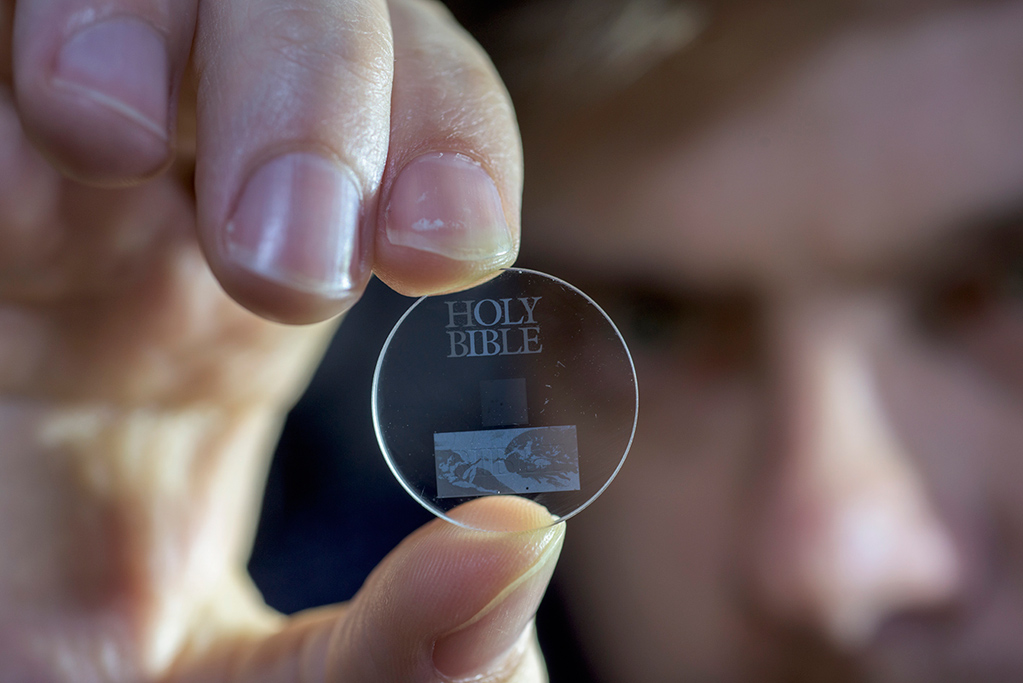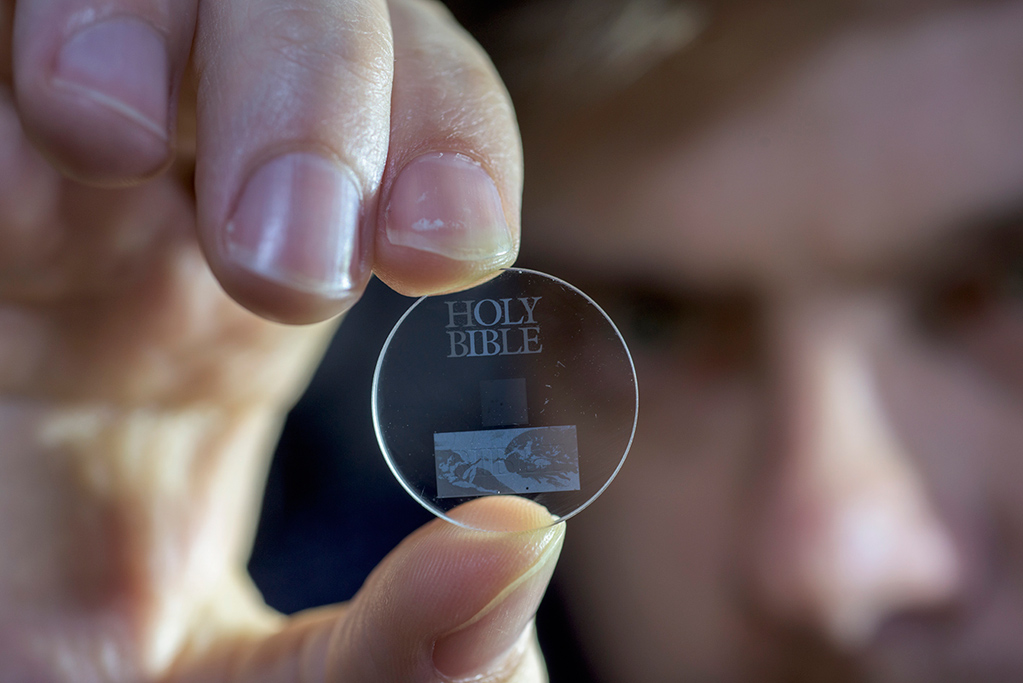Innovation of the week: Preserve your data — for billions of years
The key is "nanostructures" inside tiny glass discs

A free daily email with the biggest news stories of the day – and the best features from TheWeek.com
You are now subscribed
Your newsletter sign-up was successful
"Photos fade, books rot, and even hard drives fester," but a new way to store data could preserve human knowledge for billions of years, said James Vincent in The Verge. Scientists at the University of Southampton in England have turned to the special properties of glass to preserve data virtually for eternity — encoding music, images, and video files using "nanostructures" inside tiny glass discs.

Glass is heat-resistant and chemically stable, giving the discs an estimated life span of up to 13.8 billion years, "more than three times the age of the Earth." A complex method called five-dimensional storage allows each glass disc to carry 3,000 times as much data as a regular Blu-ray disc. Researchers have already made copies of the King James Bible, Isaac Newton's Opticks, and the United Nations' Universal Declaration of Human Rights.
A free daily email with the biggest news stories of the day – and the best features from TheWeek.com
The Week
Escape your echo chamber. Get the facts behind the news, plus analysis from multiple perspectives.

Sign up for The Week's Free Newsletters
From our morning news briefing to a weekly Good News Newsletter, get the best of The Week delivered directly to your inbox.
From our morning news briefing to a weekly Good News Newsletter, get the best of The Week delivered directly to your inbox.